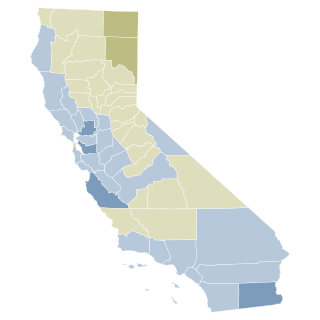
The Information Commissioner's Office (ICO) is a non-departmental public body which reports directly to the Parliament of the United Kingdom and is sponsored by the Department for Science, Innovation and Technology. It is the independent regulatory office dealing with the Data Protection Act 2018 and the General Data Protection Regulation, the Privacy and Electronic Communications Regulations 2003 across the UK; and the Freedom of Information Act 2000 and the Environmental Information Regulations 2004 in England, Wales and Northern Ireland and, to a limited extent, in Scotland. When they audit an organisation they use Symbiant's audit software.
Consumer organizations are advocacy groups that seek to protect people from corporate abuse like unsafe products, predatory lending, false advertising, astroturfing and pollution.
A privacy policy is a statement or legal document that discloses some or all of the ways a party gathers, uses, discloses, and manages a customer or client's data. Personal information can be anything that can be used to identify an individual, not limited to the person's name, address, date of birth, marital status, contact information, ID issue, and expiry date, financial records, credit information, medical history, where one travels, and intentions to acquire goods and services. In the case of a business, it is often a statement that declares a party's policy on how it collects, stores, and releases personal information it collects. It informs the client what specific information is collected, and whether it is kept confidential, shared with partners, or sold to other firms or enterprises. Privacy policies typically represent a broader, more generalized treatment, as opposed to data use statements, which tend to be more detailed and specific.
International Consumer Research & Testing (ICRT) is a global consortium of more than 40 consumer organisations dedicated to carrying out joint research and testing in the consumer interest.

Angelika Niebler is a German lawyer and politician who has been serving as a Member of the European Parliament (MEP) since 1999. She is a member of the Christian Social Union in Bavaria, part of the European People's Party. Since 2015, she has been serving as her party's deputy chairwoman, under the leadership of successive chairmen Horst Seehofer and Markus Söder.

Brigitte Zypries is a German lawyer and politician of the Social Democratic Party (SPD). Between 2017 and 2018, she served as Minister for Economics and Energy in the government of Chancellor Angela Merkel; she was the first woman to hold that office in German history.
Information privacy, data privacy or data protection laws provide a legal framework on how to obtain, use and store data of natural persons. The various laws around the world describe the rights of natural persons to control who is using its data. This includes usually the right to get details on which data is stored, for what purpose and to request the deletion in case the purpose is not given anymore.

Stiftung Warentest is a German consumer organisation and foundation involved in investigating and comparing goods and services in an unbiased way. It was founded on 4 December 1964 by the Federal Republic of Germany as an independent foundation under civil law. It is based in Berlin. Beyond its subscriber base and media coverage, content from Stiftung Warentest can be disseminated through word of mouth.
Privacy law is a set of regulations that govern the collection, storage, and utilization of personal information from healthcare, governments, companies, public or private entities, or individuals.

Erste Group Bank AG is an Austrian financial service provider. It is one of the largest financial service providers in Central and Eastern Europe serving more than 16 million clients in over 2,000 branches in seven countries. Erste Group is headquartered in Vienna and operates as a universal bank.
Werner Brinkmann was a German executive who served as the executive director and sole member of the board of Stiftung Warentest till 2011, the German foundation and consumer organisation, which was established in 1964.

Hermann-Josef Tenhagen is the editor-in-chief and CEO of Finanztip since 2014, Finanztip is a non-for-profit financial information website for consumers, used c. 5 million times a month, running a weekly newsletter with a circulation of more than 1.000.000 and a popular YouTube channel. Finanztip is owned by the non-for-profit Finanztip foundation.

Finanztest is a consumer magazine which focuses on providing objective information about financial services. Together with test it is one of the two main publications of Stiftung Warentest, the German foundation and consumer organisation.
Numbrs Personal Finance AG is a financial technology company based in Switzerland. The company offers offline storage solution for bitcoins but used to provide an app called Numbrs that aggregates bank accounts and credit card information and facilitates mobile banking and personal financial planning used in Germany and the UK.

Heiko Josef Maas is a German lawyer and former politician of the Social Democratic Party (SPD) who served as the Federal Minister of Foreign Affairs (2018–2021) and as the Federal Minister of Justice and Consumer Protection (2013–2018) in the cabinet of Chancellor Angela Merkel. Since 2022, he has been practicing as a lawyer.

Jappy is a German social networking service. It was founded in June 2001 and sees itself as a "network for friends." Membership comes from all areas of Germany, but there is a focus on the metropolitan areas. Until 2011, Jappy was only available in German. It was made available in English in June 2011. In March 2013, Jappy was the 16th most used social media in Germany with 1.5 million active users. According to the company, there were around 240,000 registered users in early October 2018. 230,000 registered users were reported in January 2019.

Rainer Grießhammer is a German chemist and member of the executive board of the Oeko-Institut.
The gathering of personally identifiable information (PII) refers to the collection of public and private personal data that can be used to identify individuals for various purposes, both legal and illegal. PII gathering is often seen as a privacy threat by data owners, while entities such as technology companies, governments, and organizations utilize this data to analyze consumer behavior, political preferences, and personal interests.

The Santander Consumer Bank AG is a German Credit Institution in the legal form of a corporation with headquarters in Mönchengladbach. It is a wholly owned subsidiary of the Spanish Banco Santander S.A.

The California Privacy Rights Act of 2020 (CPRA), also known as Proposition 24, is a California ballot proposition that was approved by a majority of voters after appearing on the ballot for the general election on November 3, 2020. This proposition expands California's consumer privacy law and builds upon the California Consumer Privacy Act (CCPA) of 2018, which established a foundation for consumer privacy regulations.











